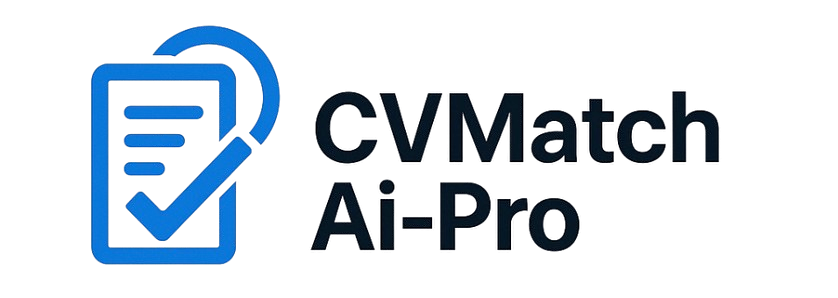Best Practices for Integrating AI into Your HR Processes
Artificial intelligence (AI) is reshaping how HR teams operate, from talent acquisition and onboarding to employee engagement and retention. Integrating AI into HR processes can deliver significant efficiency gains, improve decision-making, and enhance employee experience. However, successful AI adoption requires thoughtful planning and strategic execution. Let’s explore the best practices for integrating AI into your HR processes.
Why AI Integration Matters in HR
AI can automate repetitive tasks, uncover valuable workforce insights, and enable HR teams to focus more on strategic initiatives. When implemented correctly, AI becomes a powerful ally in building a more agile, data-driven HR function.
Enhancing Efficiency and Productivity
- AI tools can automate time-consuming tasks such as resume screening, interview scheduling, and benefits administration.
- Automation frees HR professionals to focus on high-value activities like employee engagement, talent development, and strategic planning.
- Increased efficiency leads to faster, more consistent HR services for both candidates and employees.
Data-Driven Decision Making
- AI analyzes large datasets to provide insights on hiring trends, workforce planning, and employee satisfaction.
- Predictive analytics enable proactive HR strategies, such as forecasting turnover risks or identifying future skills gaps.
- Better data translates into smarter, more informed HR decisions that drive organizational success.
Key Areas Where AI Adds Value to HR
From recruitment to employee experience management, AI offers transformative potential across the entire HR lifecycle.
Recruitment and Talent Acquisition
- AI-powered sourcing tools find and match candidates faster, improving time-to-hire and candidate quality.
- Chatbots and virtual assistants engage candidates, provide updates, and answer FAQs, enhancing the experience.
- Predictive hiring models help identify candidates with the highest potential for success and retention.
Onboarding and Employee Experience
- AI can personalize onboarding programs based on role, department, and employee preferences.
- Virtual onboarding assistants streamline paperwork, training schedules, and team introductions.
- Continuous feedback tools powered by AI capture employee sentiment and suggest improvements in real time.
Learning and Development
- AI recommends personalized learning paths based on employee skills, goals, and performance data.
- Adaptive learning platforms adjust content difficulty and delivery methods to maximize engagement and retention.
- Data-driven insights help HR teams assess training ROI and identify upskilling opportunities.
Best Practices for Successful AI Integration in HR
Implementing AI in HR is not just about technology—it’s about aligning tools with organizational goals and creating a culture that embraces change.
Start with Clear Goals
- Define specific objectives for AI integration, such as reducing time-to-hire, improving retention, or enhancing employee engagement.
- Align AI initiatives with broader HR and business strategies to ensure relevance and impact.
- Prioritize projects with measurable outcomes to build momentum and demonstrate success early.
Choose the Right Tools and Partners
- Select AI solutions tailored to your HR needs, with proven success in your industry and organization size.
- Evaluate vendors based on transparency, ethical AI practices, scalability, and ease of integration with existing HR systems.
- Opt for platforms that offer flexibility and customization to match your evolving HR processes.
Ensure Data Quality and Privacy
- AI’s effectiveness depends on high-quality, unbiased data; invest in cleaning and standardizing your HR datasets.
- Implement strict data privacy and security measures to protect candidate and employee information.
- Stay compliant with regulations like GDPR and ensure ethical use of AI throughout HR processes.
Train and Engage HR Teams
- Provide comprehensive training to HR staff on how to use AI tools effectively and interpret insights responsibly.
- Foster a growth mindset that embraces technology as a partner, not a threat, to human expertise.
- Encourage HR teams to collaborate with IT, data science, and business leaders for successful AI adoption.
Common Pitfalls to Avoid
While AI can bring substantial benefits, pitfalls such as over-automation and lack of human oversight can undermine its success if not addressed proactively.
Over-Reliance on Automation
- Automation should complement, not replace, human judgment, empathy, and relationship-building.
- Maintain personal touchpoints throughout the employee journey to preserve trust and engagement.
- Balance efficiency gains with meaningful human interactions to sustain organizational culture.
Ignoring Bias and Ethical Concerns
- AI systems can inadvertently reinforce biases if trained on flawed historical data.
- Regularly audit AI tools for fairness, transparency, and equity to ensure ethical outcomes.
- Promote diversity, equity, and inclusion goals through thoughtful AI design and monitoring.
Conclusion
Integrating AI into HR processes offers transformative potential when approached strategically and ethically. By setting clear goals, selecting the right tools, ensuring data integrity, and maintaining a human-centric approach, organizations can harness AI to create more efficient, insightful, and people-centered HR functions. The future of HR is intelligent—and it’s already here.
